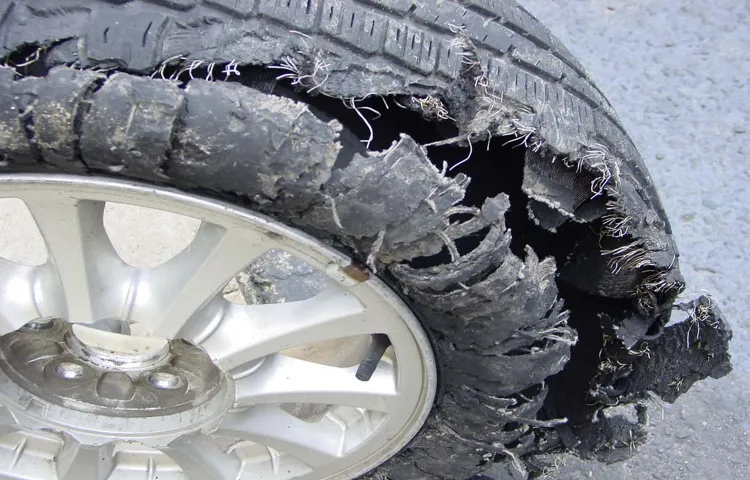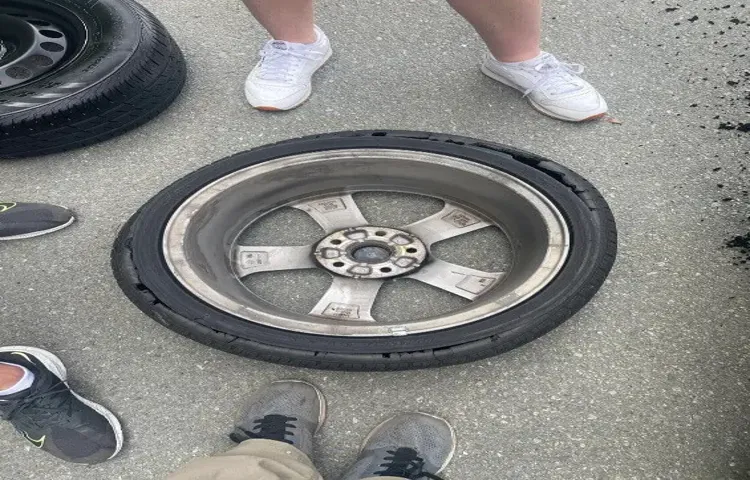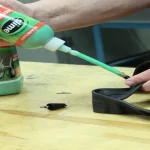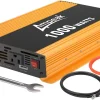When was the last time you checked the air pressure on your car tires? Many drivers underestimate the importance of properly inflated tires, but the truth is that overinflated tires can be just as dangerous as underinflated ones. In fact, overinflated tires are often more likely to burst or experience a blowout, which could lead to a serious accident on the road. Think of it this way: imagine a balloon that’s been filled with too much air.
Eventually, it will become so full that it can’t take any more pressure and will burst. The same principle applies to overinflated tires. When they’re forced to bear more weight than they can handle, they become more susceptible to punctures, ruptures, and other types of damage.
But what causes overinflation in the first place? It can be due to a number of factors, including a faulty tire pressure gauge, incorrect tire inflator settings, or simply forgetting to check the air pressure regularly. Whatever the reason may be, the result is the same: an increased risk of tire failure and a danger to yourself and other drivers on the road. So, what can you do to prevent overinflation? First and foremost, make it a habit to check your tire pressure at least once a month, and after long trips or changes in temperature.
Invest in a good quality tire pressure gauge and keep it in your car at all times. And when filling your tires with air, double-check the recommended PSI (pounds per square inch) settings in your car’s owner’s manual. By taking these simple precautions, you can avoid the danger of overinflated tires and enjoy a safer, more comfortable driving experience.
Remember, your tires are the only thing that stands between you and the road – don’t take them for granted.
Table of Contents
What is Air Pressure?
Air pressure is a force that is exerted by the air surrounding us. It is determined by the amount of air in a given area, and it changes with temperature, altitude, and weather conditions. Air pressure can be measured in various units, like pounds per square inch (psi) or atmospheres (atm).
The recommended psi for a tire depends on the make and model of the vehicle, and it can usually be found in the owner’s manual or on a sticker inside the driver’s side door. It is important to maintain the proper tire pressure to ensure optimal performance, fuel efficiency, and safety. Overinflated tires can be dangerous, as they have a higher risk of blowing out at high speeds.
The question of at what psi will a tire explode is difficult to answer, as it depends on several factors, like the age and condition of the tire, the load it is carrying, and the driving conditions. In general, most tires are designed to withstand pressures of around 30-35 psi, but it is best to consult the manufacturer’s guidelines and avoid exceeding the recommended limits.
Importance of Maintaining Proper Tire Pressure
Air pressure is the amount of air inside your car’s tires. It is measured in pounds per square inch (PSI), and it varies from vehicle to vehicle. Maintaining proper tire pressure is important because it affects several aspects of your car’s performance.
For instance, when your tires are overinflated, your car’s handling can suffer, and your tires may wear out more quickly. On the other hand, when your tires are underinflated, they can cause damage to the rim and reduce your car’s fuel efficiency. Additionally, improperly inflated tires can lead to blowouts or accidents on the road.
Therefore, keeping your tire pressure at the recommended level is crucial. It can be easily accomplished by checking your tires’ air pressure regularly, especially before road trips or when the weather changes, filling them to the recommended PSI, and avoiding overloading your car. It is also vital to ensure that your tires are not damaged or worn out.
Remembering these measures will make the ride much smoother and safer, saving you trouble in the long run.

Factors That Affect Tire Pressure
One of the most important factors that affect tire pressure is heat. As the temperature rises, so does the air pressure inside the tire. This means that during hot summer days, tire pressure is likely to increase, while during cold winter months, it may decrease.
It’s important to keep a close eye on tire pressure and make adjustments accordingly as underinflated or overinflated tires can result in reduced fuel efficiency, poor handling, and even tire blowouts. Coming back to the main concern, at what psi will a tire explode? It’s hard to put a specific number as to when a tire may explode due to excessive pressure, but it’s generally recommended to keep the tire pressure within the manufacturer’s recommended range, which can normally be found on a sticker on the driver’s side door jamb or in the owner’s manual. Additionally, if a tire is damaged, worn out, or has a weak spot, it’s much more likely to explode under high pressure.
Therefore, it’s essential to inspect tires regularly for any signs of damage and replace them as needed to ensure safety on the road.
Temperature, Altitude and Humidity
Tire Pressure Tire pressure is a crucial factor when it comes to maintaining proper tire performance and ensuring safety on the road. Several factors affect tire pressure, including temperature, altitude and humidity. Temperature can have a significant impact on tire pressure, as it affects the air inside the tire.
When the temperature drops, the air inside the tire contracts, leading to a drop in tire pressure. On the other hand, when the temperature rises, the air expands, resulting in an increase in pressure. Altitude is another factor that affects tire pressure, as the air pressure decreases at higher altitudes.
This can cause tires to lose some of their pressure, impacting their performance and wear. Lastly, humidity can affect tire pressure, as moisture can seep into the tire and cause the air inside to expand, leading to an increase in pressure. It’s essential to monitor and adjust tire pressure regularly to ensure the optimal performance, handling, and safety on the road.
Weight of the Vehicle and Load on the Tire
The weight of your vehicle and the load it carries have a significant impact on the tire pressure. When there is more weight on the vehicle, the tires need to support more weight, which leads to increased tire pressure. Similarly, when the load on the tire is more, the tire pressure also increases.
Overloading your vehicle and carrying excessive cargo can cause the tire to overheat and eventually burst. On the other hand, operating with too little weight can cause the tire pressure to drop and lead to uneven wear on the tires. It is essential to make sure your vehicle is never overloaded and the tire pressure is regularly checked.
This will not only prolong the life of your tires but also ensure safety while driving. Therefore, make sure to keep an eye on the weight of your vehicle and load on the tires to maintain optimal tire pressure for a smooth and safe ride.
Type of Tire and its Construction
When it comes to tire pressure, there are a variety of factors that can affect it. One of the main factors is the type of tire and its construction. Different types of tires and different constructions will have different recommended pressures, so it’s important to pay attention to the manufacturer’s recommendations.
For example, a high-performance tire will often have a higher recommended pressure than a standard passenger tire. Additionally, the construction of the tire can affect its pressure as well. Radial tires, for instance, require slightly lower pressure than bias-ply tires due to their construction.
It’s also worth noting that the tire pressure can change depending on the weight of the vehicle and the number of passengers. Overall, it’s crucial to regularly check and maintain your tire pressure to ensure optimal performance and safety while on the road.
What Happens When a Tire Explodes?
When it comes to tire explosions, it’s a terrifying thought for any driver. But at what psi will a tire actually explode? Well, it’s hard to say for sure, as so many factors can come into play. However, most tires are rated for a maximum inflation pressure of 44 psi and will typically fail well before they reach that point.
If a tire does happen to explode, it can be incredibly loud and startling, not to mention dangerous. The sudden release of pressure can cause the tire to burst apart, sending rubber shrapnel flying in every direction. This can not only damage your car but also pose a significant risk to yourself and other drivers around you.
To avoid such a situation, always make sure to check your tire pressure regularly and adjust it accordingly to the manufacturer’s recommendations. It’s better to be safe than sorry when it comes to your tires!
Causes of a Blowout
A tire blowout can be a frightening experience, particularly when you’re driving at high speeds. There are several causes of a blowout, such as overinflation, underinflation, overloading, and aging. Overinflated tires are more susceptible to punctures, while underinflated tires cause the sidewalls to flex, resulting in increased temperatures and tire failure.
Overloading tires beyond their weight rating creates excessive temperatures, which can cause the tire to rupture. Tire aging is also an issue, especially if tires are not used regularly or exposed to extreme temperatures. When a blowout happens, it can be startling and dangerous, causing the vehicle to suddenly pull over to one side.
The best thing to do if a tire explodes is to stay calm, firmly grip the steering wheel, and gradually slow down the vehicle while pulling over to the side of the road. Ensuring tires are correctly inflated, checking their weight rating, and monitoring their age can help prevent blowouts from happening. So the next time you’re behind the wheel, remember to keep your tires in tip-top shape to avoid the frightening experience of a blowout on the road.
Signs of a Blowout
When a tire explodes, it can be a scary and dangerous experience for drivers on the road. One of the common signs of a blowout is a loud popping sound, followed by the sudden feeling of the car veering to one side. If you’re driving at high speeds, this can make it difficult to maintain control of your vehicle.
Additionally, you may notice a sudden drop in air pressure, making the tire appear flat or visibly damaged. It’s important to remain calm and avoid sudden movements, such as slamming on the brakes or jerking the steering wheel, which can further destabilize your car. You should instead gradually decrease your speed and safely pull off of the road.
Remember, a blowout can occur due to a variety of factors such as underinflation, wear and tear, or hitting a pothole. By properly maintaining your tires and being aware of the signs of a blowout, you can help prevent this scary situation from happening to you.
The Risk Factors Involved
When a tire explodes, it can be an extremely dangerous situation on the road. The risk factors involved can range from damage to the vehicle to injury or even death. The force of the explosion can cause the driver to lose control of the vehicle, leading to a potential collision with other cars or objects.
In addition, the debris from the tire can fly into other vehicles or pedestrians, causing immediate harm. The sound of a tire explosion can also be alarming and distracting to the driver, making it harder to maintain focus on the road. Therefore, it is important for drivers to regularly check their tires for signs of wear and tear and to promptly replace them as needed.
By taking these precautions, drivers can ensure their safety and the safety of others on the road. By doing so, they can avoid exposing themselves and others to the risks involved in a tire explosion.
The PSI at Which a Tire Explodes
Have you ever wondered at what PSI a tire will explode? The answer is not a straightforward number, as it depends on various factors. Generally speaking, most tires can handle a maximum PSI of 35-45, but this differs between tire types and brands. Overinflating a tire beyond the recommended PSI can lead to a blowout, which is a sudden loss of air pressure that causes the tire to burst.
Underinflated tires are also dangerous because they can overheat and blow out at high speeds. It’s crucial to check your tire’s pressure regularly with a gauge and make sure it’s within the recommended range specified in the owner’s manual. Driving with under or overinflated tires can cause damage to the tire, shorten its lifespan, and increase the risk of a devastating accident.
Remember, maintaining proper tire pressure isn’t just about avoiding a blowout, it also affects your vehicle’s fuel efficiency and your safety on the road. So, be sure to take care of your tires, and they will take care of you.
Industry Standard for Maximum Tire Pressure
When it comes to maximum tire pressure, the industry standard is crucial for maintaining both safety and optimal tire performance. But what happens if you exceed the recommended PSI limit? Well, it’s not pretty. In fact, tires can explode if they are overinflated to a certain degree.
The maximum PSI at which a tire can explode varies depending on the type of tire, vehicle, and other factors. However, a general rule of thumb is that tires can explode when they reach around 200 PSI. This is an incredibly high pressure and not something most drivers need to worry about.
However, it’s still important to regularly check and adjust your tire pressure to avoid any potential safety risks. Overinflated tires can also lead to reduced tire life, uneven wear, and reduced handling performance. So next time you fill up your tires, make sure to follow the manufacturer’s recommended PSI to ensure a safe and comfortable ride.
How to Determine the Maximum Tire Pressure
Determining the maximum tire pressure can be a tricky task, and it’s important to understand the dangers of over-inflating a tire. While it may seem like a good idea to pump up your tires as much as possible to get better gas mileage or performance, it’s essential to know the PSI limit for your specific tire. Most vehicles will have a label inside the driver’s side door jamb that lists the recommended tire pressure.
It’s crucial to stick to this recommendation, as over-inflation can lead to tire blowouts. Generally, a tire will explode if it’s inflated to 200 PSI or higher, but it’s important not to go anywhere near that limit. Always check your tire pressure regularly with a tire pressure gauge to ensure they’re at the proper PSI and avoid any accidents on the road.
The Real PSI at Which a Tire Can Explode
When it comes to the PSI at which a tire can explode, there are a few important factors to keep in mind. While some may assume that a tire will only burst if it is significantly overinflated, the truth is that the exact pressure at which a tire will fail can vary based on several variables. These include the type of tire, the age of the tire, the vehicle’s weight and load capacity, and even the road conditions at the time of the incident.
Generally speaking, most tires are engineered to withstand pressures well above the recommended PSI for normal use. However, if a tire becomes damaged or worn, it can become much more susceptible to bursting at lower pressures. Additionally, extreme heat or cold can cause the air inside a tire to expand or contract, which can increase the risk of failure.
Ultimately, it’s always important to err on the side of caution when it comes to tire pressure, and to regularly inspect and maintain your tires to ensure they are in good condition.
Conclusion
In conclusion, determining the exact psi at which a tire will explode is like trying to predict the exact moment when your significant other will start loving your collection of antique spoons – impossible. However, what we do know is that maintaining proper tire pressure is crucial for both safety and performance. So, while we can’t guarantee avoiding a tire blowout altogether, we can certainly reduce the risks by regularly checking and maintaining our tire pressures.
Remember, when it comes to tires, prevention is better than explosion!”
FAQs
1. How high is the risk of a tire exploding if the psi is too high? A: The risk of a tire exploding increases significantly if the psi is too high, especially in hot weather conditions. 2. What are the signs of a tire that is about to explode? A: Some signs to look out for are bulges or bubbles on the tire, hissing sounds coming from the tire, and a sudden decrease in air pressure. 3. How often should I check my tire’s psi to prevent an explosion? A: It is recommended to check your tire’s psi at least once a month and before long trips to ensure they are at the correct pressure and prevent any potential for explosions. 4. What should I do if my tire explodes while driving? A: If your tire explodes while driving, try to remain calm and steer your car to the side of the road as safely as possible. Do not hit the brakes suddenly or make sudden turns. 5. Can using nitrogen instead of air in tires prevent explosions? A: Nitrogen-filled tires can reduce the risk of tire explosions since nitrogen is less reactive to temperature changes compared to air. However, it does not guarantee the complete prevention of explosions. 6. What is the recommended psi for my specific car and tire model? A: The recommended psi varies depending on the car and tire model. You can find this information in your car’s manual or on the tire’s sidewall. 7. How do I properly inflate my car’s tires to prevent explosions? A: Use a tire pressure gauge to check the current psi of the tire, inflate the tire if necessary to the recommended psi, and make sure to screw on the valve caps tightly.



